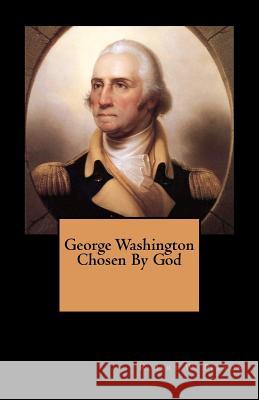George Washington Chosen By God » książka
George Washington Chosen By God
ISBN-13: 9781463728427 / Angielski / Miękka / 2011 / 296 str.
George Washington presided over the Constitutional Convention, during which time the Constitution was approved and adopted at the State house in Philadelphia on September 17, 1787. Only he, a moral, honorable and dignified man -- through personal example, committed leadership and force of character -- could hold the strong-willed, opinion-differing men together at the glorious Constitutional Convention. The destiny of a great nation lay upon the shoulders of this heroic leader. Soon after he wrote de Lafayette that "It (the Constitution) appears to me, then, little short of a miracle." Inducted by Life Magazine in 1998 into its Hall of Heroes, these words most appropriately written by historian Garry Wills: "Washington is the greatest President, greatest leader, greatest politician. He steered a course through revolution and nation-building with immense tact and wisdom. Nobody else could have done it." He was equal to the task. This man was the personification of the uppermost inherent worth of Western man. He was a man of understanding, judgment, and devotion to and faith in God. He was a solider of physical strength, uprightness, and moral fiber beyond reproach. He was a Christian patriot with a sense of destiny and great courage. He was willing to fight and die for a just cause, his cause. George Washington is an American hero whose eminence is not fully covered by the record of his life. The man was substantially greater than anything he did. He was a military genius, a mastermind. He wrenched freedom, independence and liberty from oppression; He was an outstanding statesman. He helped evolve a secure government from political turmoil; He was a patriot. He refused a crown. Wisdom and understanding, persistence, forbearance, bravery, dedication to the worthy cause animated his every act. Thanklessness, unfairness and disloyalty never disillusioned him, but served to reinforce and make his character stronger. He grew in dignity and in capability to the need of his mounting responsibility and authority. He never became pompous or disdainful. Personal aspirations and selfish opportunity never tempted him from the slender corridor of honor. Washington dutifully recorded the words of advice his mother Mary gave him when he was leaving home to begin what would turn out to be a lifelong service to his country. She instructed her son with these words: "Remember that God is our only one trust. To Him, I commend you ... My son, neglect not the duty of secret prayer." And did George Washington heed his mother's admonition? Of course he did. Throughout his life, whether while a young man, Commander-in-Chief of the Continental Army, or President of the United States, George Washington showed, by example, how meaningful were his mother's teachings. When Washington took his oath of office as President of the United States, he subsequently bent forward and kissed the Bible on which he had just taken his oath. The Bible was opened to the Book of Genesis. He then led the Senate and the House of Representatives to the church for a two hour worship service. Washington, "without making ostentatious professions of religion, was a sincere believer in the Christian faith, and a truly devout man," according to John Marshall, first Chief Justice of the United States Supreme Court. Marshall had fought with General Washington at Valley Forge. After Washington died on December 4, 1799, Reverend J. T. Kirkland said: "The virtues of our departed friend were crowned by piety. He is known to have been habitually devout. To Christian institutions he gave the countenance of his, example; and no one could express, more fully, his sense of the Providence of God, and the dependence of man."
Zawartość książki może nie spełniać oczekiwań – reklamacje nie obejmują treści, która mogła nie być redakcyjnie ani merytorycznie opracowana.











